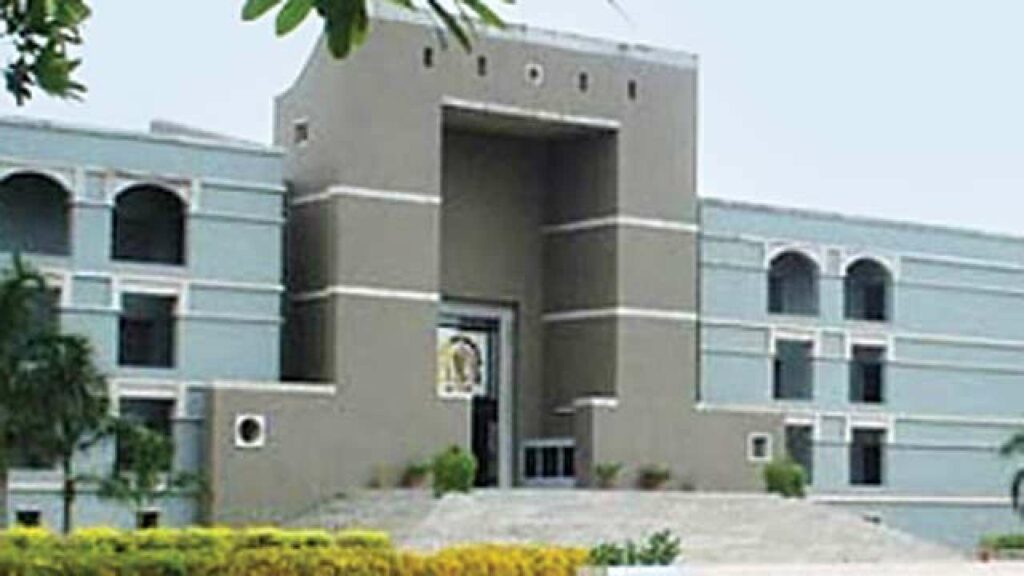![]()
The Gujarat High Court has held that a workman cannot be denied the benefit of Section 25F of the Industrial Disputes Act which prescribes conditions precedent to retrenchment merely because he is engaged on contract basis, given that he rendered continuous services for several years, without any break.
In this light, Justice AY Kogje dismissed the petition filed by the Jamnagar Municipal Corporation challenging the award of the Labour Court which directed reinstatement of one such contractual workman, whose services were the terminated due to outsourcing of contract work.
The bench heavily relied on Gujarat Agro Industries Corporation Ltd. where it was categorically held as follows:
“The fact that consecutive orders repeatedly appointing the claimant for short duration are passed from time to time, go to show that the such arrangement is a conscious decision and attempt of the respondent to give artificial breaks in the service of the claimant so as to circumvent or frustrate the statutory provisions, more particularly section 25F of the Act and to misuse, rather abuse, the provisions under clause (bb) of section 2(oo) of the Act with a view to depriving the claimant of his legal rights conferred by various provisions under different Labour Laws.“
Section 2(oo)(bb) exempt termination of services of a workman as a result of the non-renewal of the contract from application of Section 25F.
The High Court noted that after replacing the Respondent, a lineman in the Light Department of the Corporation, the persons under the new contractor were doing the same work. Further, the Respondent had worked continuously without any break and the Court found no evidence on behalf of the Petitioner which could prove otherwise.
The chief contention of the Petitioner was that the original engagement of the Respondent-workmen was for a temporary period on an ad hoc basis and on contract basis and the same was mentioned in the order of appointment. The workmen were employed for the particular purpose of maintaining street lights in Jamnagar city. Subsequently, when the street lights were updated with LED technology, the Corporation had to float a tender for the ‘special job’ and the work order was issued in favour of the new contractor for installing LED lights. Additionally, the decision to enter into a contract with the Respondent-workmen was taken for a period between 06.12.2015-31.05.2016 which the Respondent-workmen undertook voluntarily. The Corporation insisted that its activity would fall u/s 2(oo)(bb) which mandates that non-renewal of employment of agreement upon expiry would not be considered as retrenchment.
Contrary to these contentions, the Labour Court had held that the workmen had work with the Petitioners since 2010 as linemen for the purpose of maintenance of street lights. Therefore, they completed more than 240 days and their termination violated Sec 25(G) and (H) of the Industrial Disputes Act. The Respondent-workmen submitted that the contention regarding change in method of LED was an ‘artificial reason’ which did not imply that no manpower would be required for installation.
Justice Kogje observed:
“It is submitted that case of the petitioner-Corporation cannot be saved by Section 2(oo)(bb) in view of the fact that the contract, which the petitioner is relying upon Exh.28 was the last contract. However, first appointment of the respondent-workman was of the year 2008, wherein by order dated 25.06.2010 (Exh.18), the respondent was duly appointed. It is not the case of the petitioner-Corporation that after 2010, the respondent was discontinued for the entire period and straightaway in the year 2015, was appointed by another contract. In fact, evidence on record clearly indicates that he has continuously worked.“
Significantly, the Bench concluded that the contract signed between the Petitioner was for a period between 06.12.2015-31.05.2016 for a pay of INR 7,800. This contract was signed on 06.02.2016 while the contractor was to begin work under the contract from 01.07.2016. Thus, the execution of the contraction on 06.02. 2016 seemed to be an ‘afterthought’ which was in clear breach of Sec 25(G) and (H).
Considering these facts, the High Court dismissed the application and held that the Respondents will not be covered u/s 2(oo)(bb). Thus, the Labour Court’s order directing reinstatement of Respondent was upheld.
Case No.: C/SCA/10126/2018
Case Title: JAMNAGAR MUNICIPAL CORPORATION v/s AVDESH KISHORBHAI SOLANKI
How useful was this post?
- Share review with rating here: Google Review
We are providing practical training (Labor Laws, Payroll, Salary Structure, PF-ESI Challan) and Labor Codes, Payroll Consultant Service & more:
- HR Generalist Practical Training + Certificate
- Labor Law + Payroll Practical Training + Certificate
- HR Analytics Practical Training + Certificate
- Labor Code, 2020 (Crash Course) + Certificate
- Advance Excel Practical Training + Certificate
- Disciplinary Proceeding & Domestic Enquiry – Practical Training + Certificate
- PoSH Act, 2013 (Sexual Harassment Of Women At Workplace & Vishaka Guidelines) – Practical Training + Certificate
- Compensation & Benefits – Practical Training + Certificate
- Industrial Relations – Practical Training + Certificate
- Labour Code (2019 & 2020) With Latest Updates | Labour Bill (Labour-Law-Practical-Training)
- PF – ESI Consultant Service
- Labor Law Consultant | Compliance Management | HR & Payroll Outsourcing
Get Latest HR, IR, Labor Law Updates, Case Studies & Regular Updates: (Join us on Social Media)
- Telegram Channel: “The One Clik”
- Whatsapp Group: https://wa.me/919033016939
- Facebook: One Clik
- Linkedin: The One Clik
- Instagram: oneclik_hr_management
- YouTube: The One Clik
Disclaimer: All the information on this website/blog/post is published in good faith, fair use & for general informational purposes only and is not intended to constitute legal advice.

